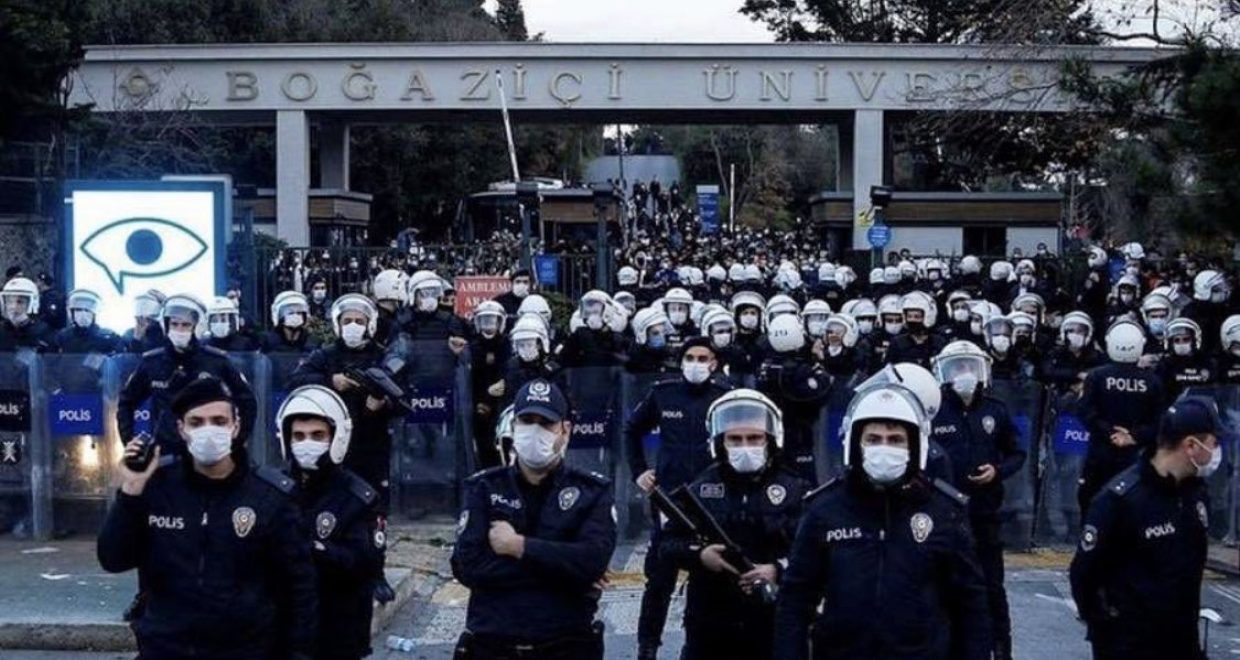It is Not Just One University: Reflections on the Recent Developments at Boğaziçi University
The autonomy of universities from politics and the executive branch may sometimes be taken for granted. For this reason, it is worth emphasizing why that autonomy is so important. Universities not only provide education for the adults of the future but they are also expected to undertake research and produce new ideas which are so important for the future of society. For both of these functions, diversity of ideas and approaches is essential. It is for this reason that academic freedoms and toleration for dissent as well as the autonomy of universities are accepted as essential principles in democratic societies.
Autonomy for higher education has often been stated but has rarely been tolerated in Turkey. There have been periods of greater autonomy and more freedom for Turkey’s universities since the transition to a multi-party political system in 1950. For the politicians in power, however, the higher education system remained an important area that needed to be controlled. During the last period of formal military rule, the generals devised a new instrument for control by establishing, in 1981, the infamous YÖK or the Higher Education Council. As student numbers and the resources of Turkey’s higher education system expanded rapidly and many new universities, public and private, were established across the country, YÖK emerged as a key institution at the center of national debates. Political parties in opposition often stated that they plan to abolish YÖK but decided once in power to make use of its far-reaching powers. Many new laws and regulations were added every year and the powers of YÖK have increased over time.
The attitudes of the ruling AKP (Justice and Development Party) towards the YÖK has followed the same pattern and more. The party stated before it came to power and during its early years in power that it was against the over-reach of YÖK. However, the AKP embraced YÖK as a very convenient tool as it consolidated its power and transformed Turkey’s multi-party regime into an authoritarian one-man system. After the transition to the new presidential regime in 2016, even the broad powers of YÖK were considered not sufficient. The powers of the president were soon expanded further so that the university rectors can be appointed directly by the president. Most of Turkey’s public universities are now being led by rectors with close connections to the AKP and its long-standing leader.
The recent appointment of a part-time AKP politician with limited experience as an academic administrator as the new rector of Boğaziçi University is only the most recent example of the ruling party’s drive to fully control the country’s higher education system. In a decision designed to coincide with the appointment, president Erdoğan and YÖK also announced the addition of two new schools, one in law and the other in communications, to the university and began immediately to make appointments to these new schools without consultation with the academic bodies of the university. These moves were part of a model employed frequently as the AKP gained control over other public universities during the last decade. They made clear that the YÖK and the government intended to gain control of the university and direct it as it does most other public universities across the country.
Boğaziçi University had been able to maintain its autonomy, direct its internal affairs and make its own academic appointments for most of its 50-year history. The only exception was during the military regime in 1982 when the newly established YÖK appointed a professor from another university as the rector who remained in charge for ten years. The university’s other rectors have all been elected or appointed from its own faculty. Autonomy and low levels of hierarchy have been important elements in the university’s academic success. Large numbers of faculty members have been actively involved at decision making at the department level and the students have been free to run their own extracurricular activities without administrative interference.
Not surprisingly, the appointment of a new rector from outside the university and the accompanying moves by YÖK and the government have been met with protests from the faculty and the students who are determined to protect the university’s long-standing culture. In response, the AKP government and the media it controlled was quick to escalate the rhetoric and the tensions. Adopting law and order themes, labelling the students as terrorists and the faculty as detached elitists, they appeared eager to turn the standoff into a major issue in national politics.
The attack at Boğaziçi University represents only the most recent episode in the efforts by the AKP to control the entire higher education system. The ruling party has been relentless in its efforts to suppress diversity and replace it with what it calls the “local and national,” not only across the higher education system but also in the country’s social and political life. While the students and the faculty continued their protests and resistance, what appears at stake in this unequal struggle is not only the future of a leading university but the future of the Turkish university system and indeed the model for the entire country.
*Şevket Pamuk is a founder and former editor of this journal as well as being a current member of its editorial board and has been teaching at Boğaziçi University for more than twenty-five years.
Explore New Perspectives on Turkey on Cambridge Core to learn more about this ground-breaking Journal and its content offerings.






